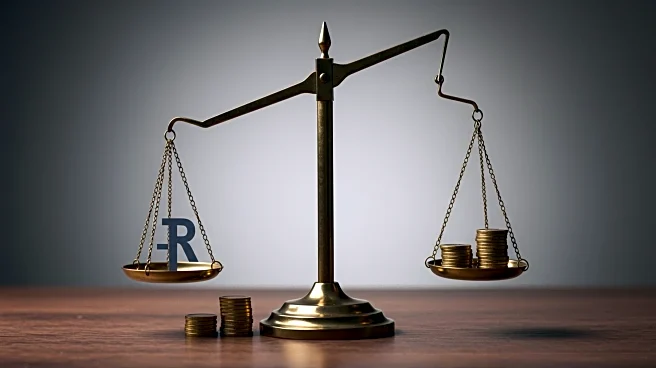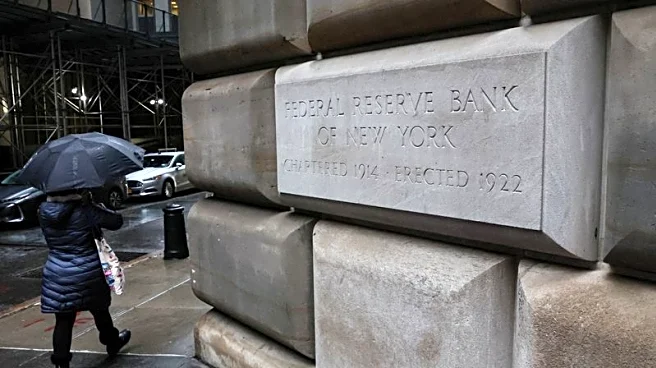What's Happening?
Chicago Federal Reserve President Austan Goolsbee has expressed concerns over the impact of tariffs on inflation, which could influence the Federal Reserve's decision on interest rate cuts. Speaking at the Greater Springfield Chamber of Commerce, Goolsbee highlighted the challenge of determining whether tariffs will cause a temporary or persistent rise in inflation. The Fed's recent decision to maintain the benchmark overnight interest rate in the 4.25%-4.50% range faced opposition from Fed Vice Chair of Supervision Michelle Bowman and Fed Governor Christopher Waller, who advocated for rate cuts due to potential labor market weaknesses. The U.S. Labor Department's revised job growth estimates for May and June, along with a smaller-than-expected job gain in July, have intensified discussions on rate adjustments. President Trump criticized the job data and dismissed the commissioner responsible for it, while Treasury Secretary Scott Bessent and some Fed officials have supported rate cuts.
Why It's Important?
The Federal Reserve's deliberations on interest rates are crucial for the U.S. economy, as they directly affect borrowing costs, consumer spending, and business investments. The potential impact of tariffs on inflation could lead to significant policy shifts, influencing economic growth and stability. A rate cut could stimulate economic activity by lowering borrowing costs, but it also risks exacerbating inflation if not carefully timed. The labor market's health, indicated by job growth and unemployment rates, plays a pivotal role in these decisions. The ongoing debate reflects broader economic uncertainties, including immigration trends and consumer price fluctuations, which could have lasting effects on economic policy and market confidence.
What's Next?
The Federal Reserve is expected to closely monitor upcoming data, including wholesale price and broader inflation figures, to assess the need for rate adjustments. The Fed's next meetings will be critical in determining the course of action, with potential implications for economic stakeholders. Political pressure from President Trump and allies for rate cuts adds complexity to the decision-making process. The Fed's approach will likely consider both immediate economic indicators and long-term impacts on inflation and labor market dynamics.
Beyond the Headlines
The debate over interest rates and tariffs underscores the intricate balance between economic policy and political influence. Ethical considerations arise from the dismissal of the job data commissioner, highlighting tensions between political agendas and data integrity. The situation also reflects broader cultural and economic shifts, such as immigration's role in labor market dynamics and the evolving nature of consumer price pressures. These factors contribute to a complex economic landscape that requires careful navigation by policymakers.











